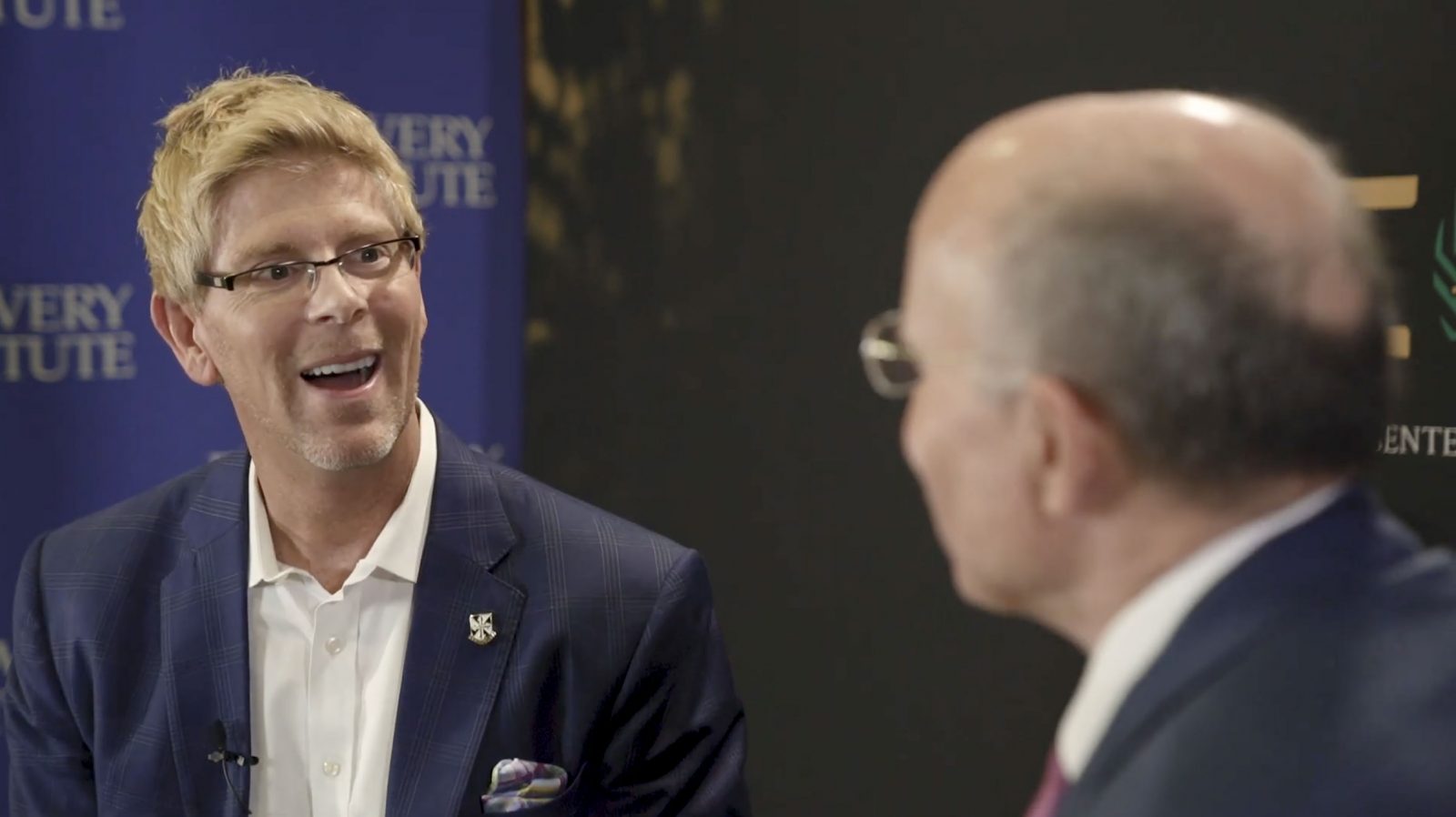


Evolution’s Demigods: Reviewing the Tour/Cronin Debate
Do biologists give too much credit to natural selection and self-organization? What are the limits of a materialist approach to science? On this ID The Future, we bring you the second half of a panel discussion reviewing the recent debate between Rice University chemistry professor Dr. James Tour and University of Glasgow professor of chemistry Dr. Lee Cronin. In November 2023, Dr. Tour and Dr. Cronin participated in a roundtable debate on origin-of-life studies at Harvard University with a live audience of Harvard faculty and guests. Even if you haven’t seen the debate yet, you’ll get valuable insight into the state of origin-of-life research from this panel discussion, featuring three of our own: scientist and attorney Casey Luskin, physicist Brian Miller, and Center for Science and Culture Senior Fellow Dr. Stephen Dilley. It also featured Arizona State University Professor of Philosophy Owen Anderson. The second half of the conversation begins where Part 1 left off: with a critique of the seemingly limitless power attributed to natural selection. In the debate, Dr. Cronin called natural selection “the force that produces our stars.” Dr. Miller explains why natural selection wields so much power for scientists like Cronin: “What a lot of origin-of-life people do is they talk about natural selection as a demigod with creative agency. That’s how they rationalize away the evidence for design.” The panel also discusses how intelligent design is a legitimate threat to materialist science, and how Dr. Tour’s challenge is impacting the origin-of-life research community. They conclude with the reminder that a mind-first view of the natural world can not only help us personally, it can help society create better solutions for living. This discussion was recorded by the Kirkwood Center and hosted by Kirkwood president Anthony Costello and vice-president Lenny Esposito. We thank the Kirkwood Center for permission to share it. This is Part 2 of a two-part discussion. Listen to Part 1 if you missed it. Dig Deeper Listen to Dr. Stephen Meyer interview Dr. James Tour about the origin-of-life debate:

Carbon Valley Trumps Silicon Valley
On this episode of ID the Future from the vault, we hear from two contributors to the Crossway anthology, Theistic Evolution: A Scientific, Philosophical, and Theological Critique, Molecular biologist Douglas Axe and philosopher of science Stephen Meyer explain how Carbon Valley Trumps Silicon Valley, and shouts intelligent design. They compare some of today’s technological marvels to living technology, and show how even “simple cells” far exceed even the best silicon valley has to offer.

Jay Richards at COSM Talks Kurzweil and Strong AI
On this episode of ID the Future, Andrew McDiarmid catches up with philosopher Jay Richards at the recent COSM conference in greater Seattle. The two discuss the history of George Gilder’s Telecosm conferences and how the first one gave birth to a book Richards edited and contributed to 18 years ago, Are We Spiritual Machines? Ray Kurzweil vs. the Critics of Strong A.I. Is the “singularity” coming, as Kurzweil argues there and elsewhere, when machines equal and then quickly surpass human intelligence? Does “machine learning” really mean learning? Will “Skynet” wake up? Jay describes Kurzweil’s sunny version of strong AI and the dystopian version. Then he argues the other side, namely that human beings possess something beyond the purely material, something even the most powerful computers will never possess.

Walt Disney’s Views on Science and Its Dangers
On this episode of ID The Future, John West, Associate Director of the Center for Science & Culture and author of Walt Disney and Live Action: The Disney Studio’s Live-Action Features of the 1950s and 60s talks about how science is portrayed in Walt Disney’s films and theme parks. Disney’s worldview was an interesting blend of 19th century morals with a 21st century vision for science and technology. A futurist, Disney was given to techno-utopianism and his works tended to reflect this, but have also bore warning messages about the dangers posed by both science and technology. John West explores these interests both in his exhibits and his film works.